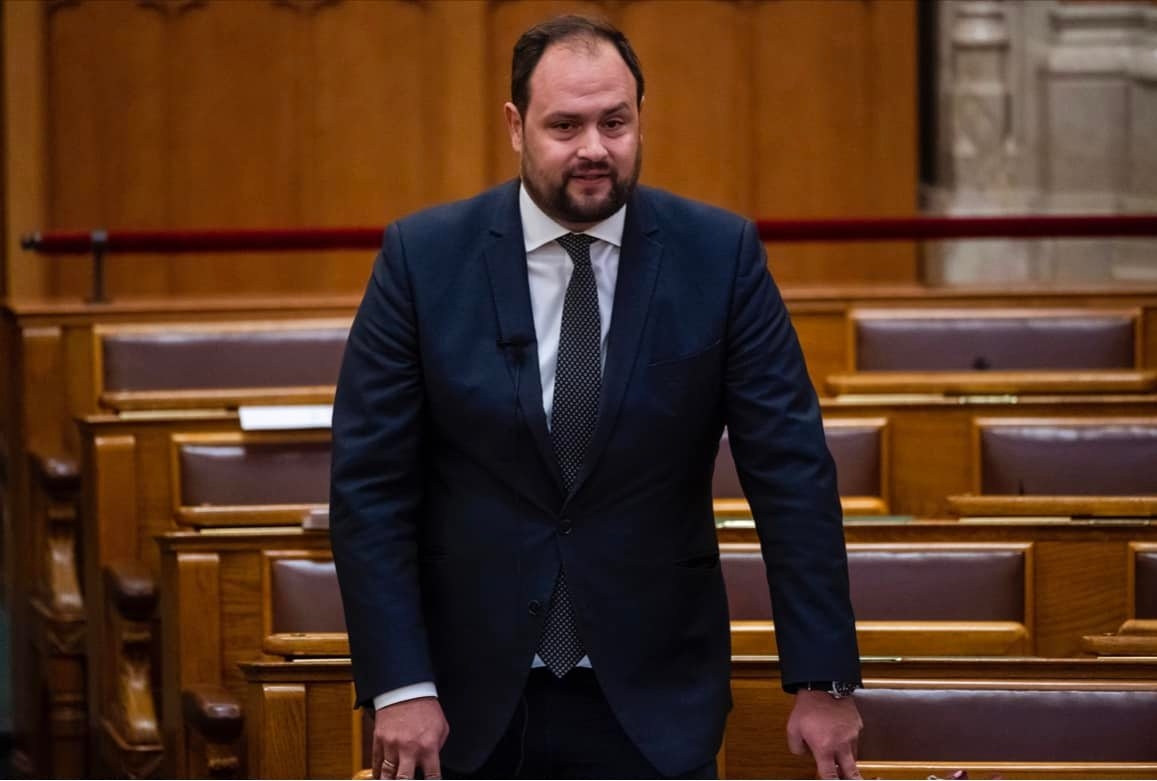Orbán believes pro-peace forces will prevail in Europe

Pro-peace forces will sooner or later become the majority in Europe, Balázs Orbán, the prime minister’s political director, told a panel discussion at the Bálványos Summer University in Baile Tusnad, in central Romania. “Time is on their side,” he said.
He told a roundtable discussion on party politics that the Ukrainian decision to impose limitations on the amount of crude to be delivered through the country by Russian-owned Lukoil was linked to “the peace mission and Hungary’s stance on the war”.
“In just two weeks we managed to make waves causing serious problems in the entire pro-war force field. There is now an alternative strategy, represented by Hungary, and to be tabled at the meeting of European heads of state and government. This is a historic situation, and Hungary has a historic responsibility to do whatever it can for peace,” Orbán said.

The majority of Europeans want peace, European policy must change
Regarding Prime Minister Viktor Orbán’s “peace mission”, LMP group leader Máté Kanász-Nagy said his party was pro-peace. At the same time, he said he had not seen “concrete results” of the peace mission: “I’m not sure it has brought peace closer.”
László György Lukács of Jobbik – Conservatives said the party had always stood up for “a fair peace”. “If that is the substance of the peace mission, Jobbik will support it.”
Lőrinc Nacsa of the junior ruling Christian Democrats (KDNP) slammed Jobbik, saying that Márton Gyöngyösi, the party’s leader until two weeks ago, had “voted for 17 pro-war decisions in the European Parliament”.

Orbán said peace was conditional on restoring communication channels. “How do they want peace if they refuse to speak with one of the [warring] parties?” The policies of the past 2.5 years “are a dead end”, he said.
He added that the Ukrainian leadership of the western Transcarpathia region of the country would be open to cooperating with Hungary, “but Kyiv is waging war; they want to beat the Russians. Due to its pro-peace stance, Kyiv politicians have identified Hungary as a political opponent,” he said.
Central Europe now has a party family in the EU
On the matter of the “quarantining” of the Patriots for Europe group in the European Parliament, Lukács said no groups should be quarantined “for their role on a political side or its opinions”. “Lots of people have voted for those forces, and what happened is not right,” he said.
Orbán said that, similarly to the boycott of the EU Council meetings during Hungary’s presidency, the step was “revenge — insignificant, petty revenge”. The European People’s Party is now “as much in lockstep with the leftist mainstream as for example the Greens are,” he said. The true “logic of power”, he said, was whether a party belonged to a party family or not. “Up to now central Europe had no party family; now it has one,” he said, adding that that fact alone would boost the region’s ability to represent its interests.
Nacsa said the European Commission should “return to its original role” and to the rule of law. Instead, the Commission “is using so-called legal tools as a political cudgel” and regularly employs double standards against Hungary, he said.
Read also:
- Hungary took out a gigantic Chinese loan in secret – avoiding bankruptcy? – Read more HERE
- First Hungarian-made Lynx rolls off assembly line – PHOTOS and more in THIS article
Source:






Pro-peace means supporting the end of invasions as opposed to the pro-whore FIDEZ approach to relations with communist and dictatorial governments.
Pro-peace is a euphemisn for pro-Kremlin. I very much doubt Hungary would show any interest in the establishment of peace between the warring parties if the west wasn’t supplying Ukraine with arms. The opposite, it would be encouraging Russia to prosecute its war for as long as possible to subjugate Ukraine. Contrary to the rhetoric about Ukraine losing, all parties realise that a Russian victory will be very difficult as long as Ukraine enjoys western support, which is why Hungary spends every ounce of energy on undermining the western position. Hungary has, again contrary to the rhetoric, experienced few negative effects from the war beyond a geographical proximity. Expensive energy is more to do with the undesirable forward supply contracts the Hungarians rushed to conclude which now look expensive compared to the spot prices for oil and gas.